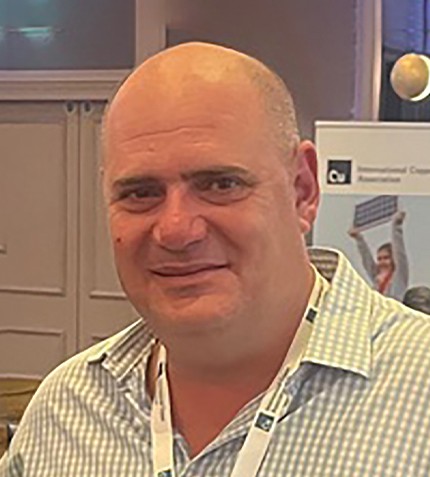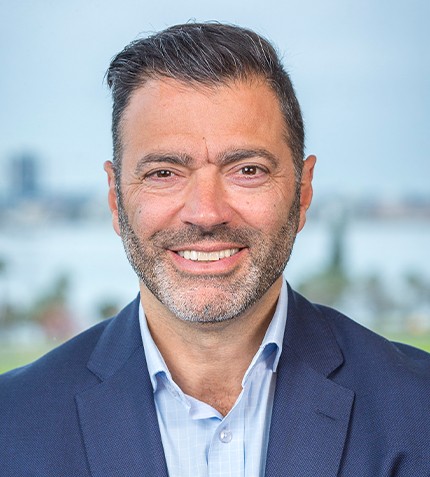
"We next aim to have a fuel-agnostic product that can handle hydrogen as well as diesel or LNG to meet carbon targets."
Leon Goosen
CHIEF EXECUTIVE OFFICER, BELL EQUIPMENT
Bell posted a 63% growth in profit after tax in FY2022. What has driven this growth?
2022 was an exceptional year on the back of strong global demand and post-Covid stimulus investments. We saw strong growth in our order book, capitalizing on the buoyant market conditions. During the difficult pandemic period, we decided to not let go of any of our employees, and this has certainly paid off.
How has Bell’s portfolio evolved in recent years?
Bell has been at the forefront of the articulated dump truck (ADT) technological innovation for around two decades. Our latest ADT innovation is in the field of autonomous vehicle operation. Integrating Bell ADTs with pedestrian detection systems (PDS) and collision avoidance systems (CAS) was made available as an option in 2019. We also introduced two new ADT models for underground mining. These machines also feature an “autonomous-ready” platform that is easily configurable for remote operation. We have the capabilities to replicate the success we had in open-pit mining and become a recognized player for underground products. Next year, we will be launching our first underground load haul dump (LHD).
What I am most excited about is our diversification to motor graders – this a complex product, having reached the final phase of testing in preparation for launches in the US, Europe, and Southeast Asia.
We have also been working on innovative solutions to meet the different emission requirements. Bell ADTs are now compatible with alternative fuels. Our trucks are fully compatible with HVO (Hydrotreated Vegetable Oil) without the need to dilute with diesel or change engine peripherals and/or service intervals. We next aim to have a fuel-agnostic product that can handle hydrogen as well as diesel or LNG to meet carbon targets.
How are you adapting your autonomous solutions to the African market?
While having a fully autonomous product may be still a long way into the future for some African operators, we can offer a “follow-the-leader” concept, whereby we bring one driver on the front truck and four or five other semi-automated trucks following him without the need for more drivers. This is not the same as someone sitting in a control room playing with a joystick, but it has a massive impact on reducing operating costs.
What is Bell’s manufacturing footprint strategy in light of global supply chain disruptions?
Since our South African plant is quite far from our main markets, we have systematically beefed up our investments in our second manufacturing plant in Germany. In the same breath, given our growth trajectory, we need more capacity to supply new products.
Why did Bell decide to pursue a dealer model in African markets?
Decades ago, we tried to do everything ourselves, but we changed that model and signed up more independent dealers. This has allowed us to increase our footprint and serve our customers with a wider product range, complemented by our partners. Bell is represented by different dealers in the continent: Kanu Equipment in Botswana, Tanzania, the DRC, Kenya, and West Africa, Hardrock Earthworks in Namibia, and Lonagro in Mozambique. We retained direct operations in South Africa, Zimbabwe, Zambia, and Eswatini.
In 2024, Bell turns 70 years since it was founded. What has been the core pillar behind the company’s success?
In this 70 years history, we learned that it is not enough to have the best product without the most reliable support. Our 3,800 employees that care about customers make everything possible because for us to succeed, we need our customers to be successful. It is also our employees that will be the main contributor to our success in the next 70 years. There are no other guarantees.
As a JSE-listed player, what makes Bell a good investment option?
Our stock price is not reflective of the intrinsic value that Bell Equipment holds. Going through the global financial crisis, the pandemic, and other difficult periods, we always made the calls that are in the best interest of the long-term investors. And those long-term investors have always seen the fruits of the growth strategy we are deploying through investments in IP, new markets, and future technologies.










